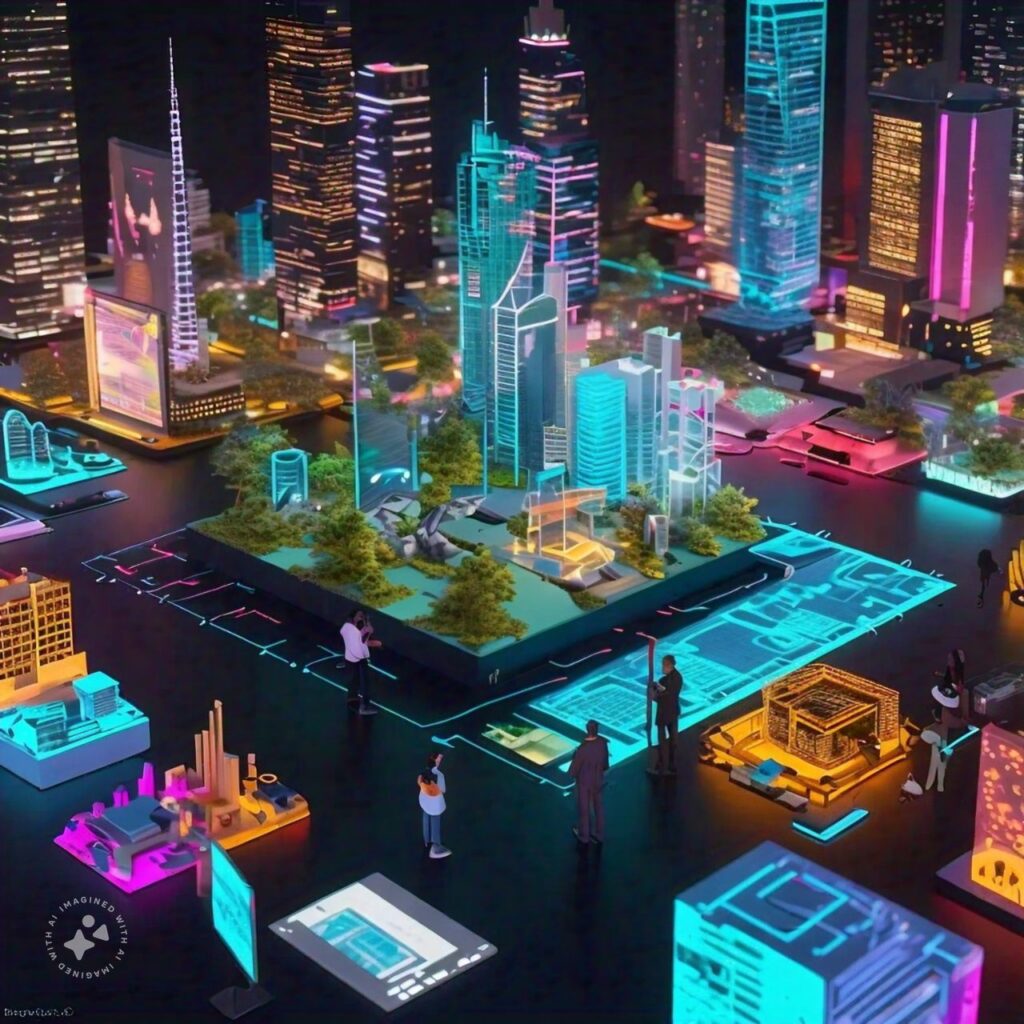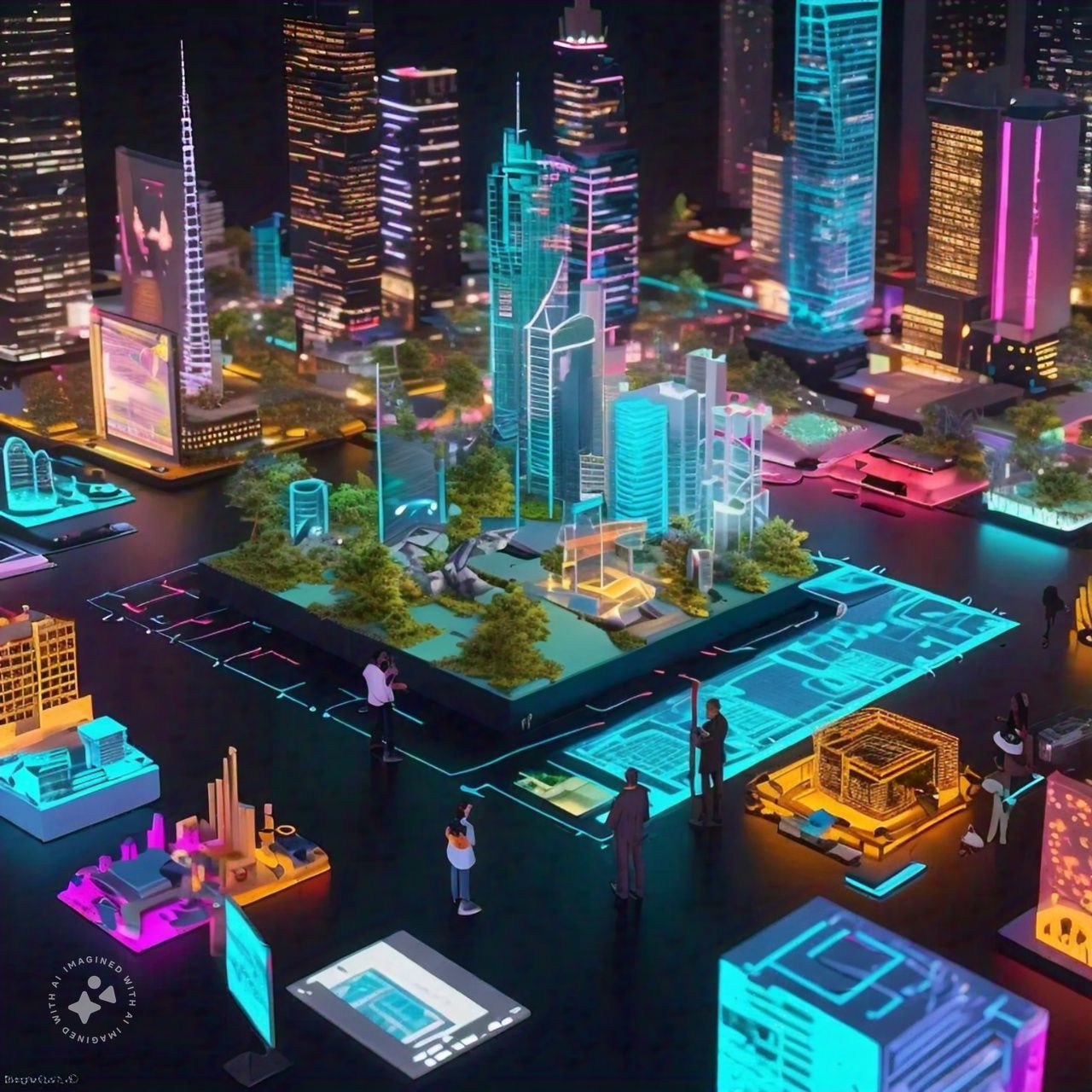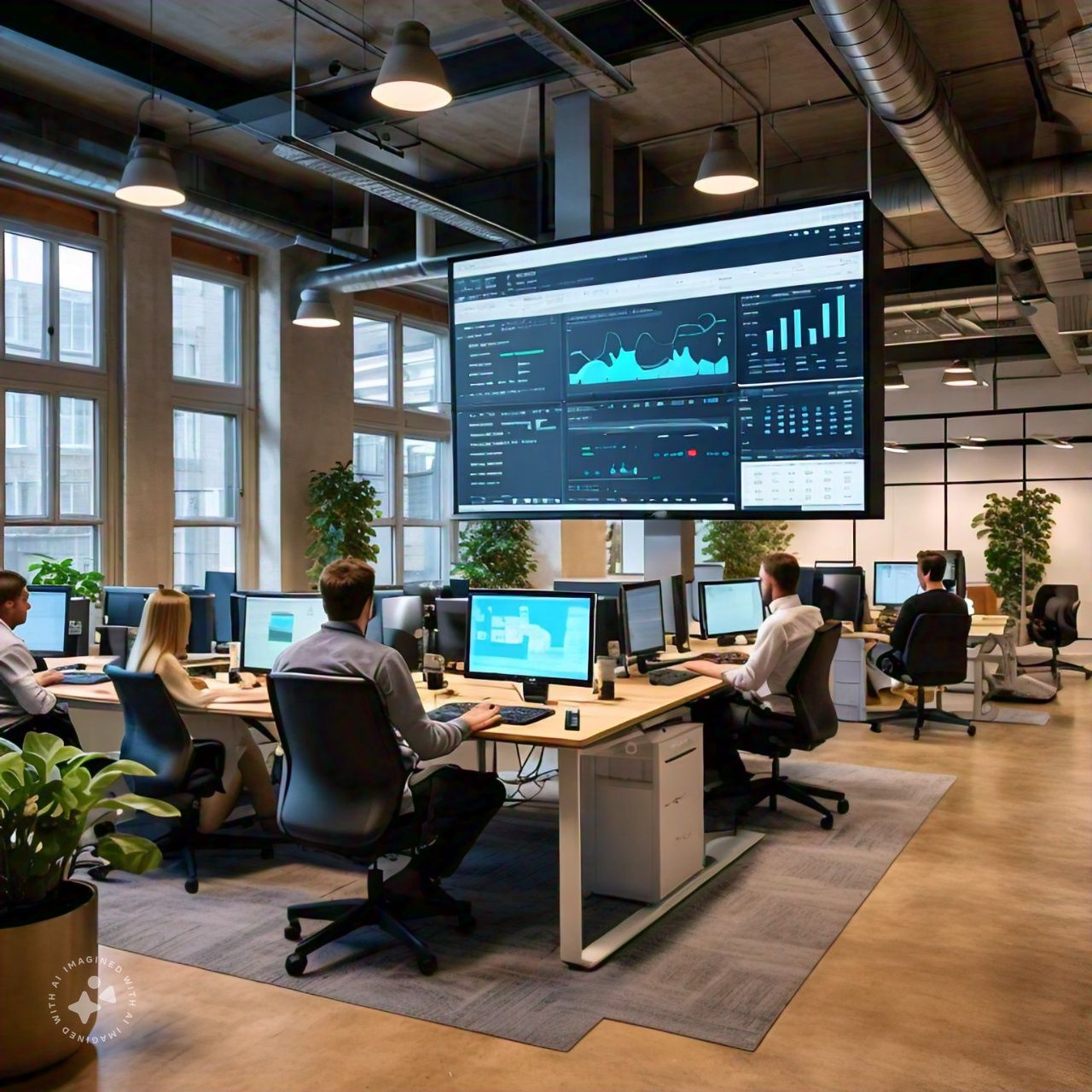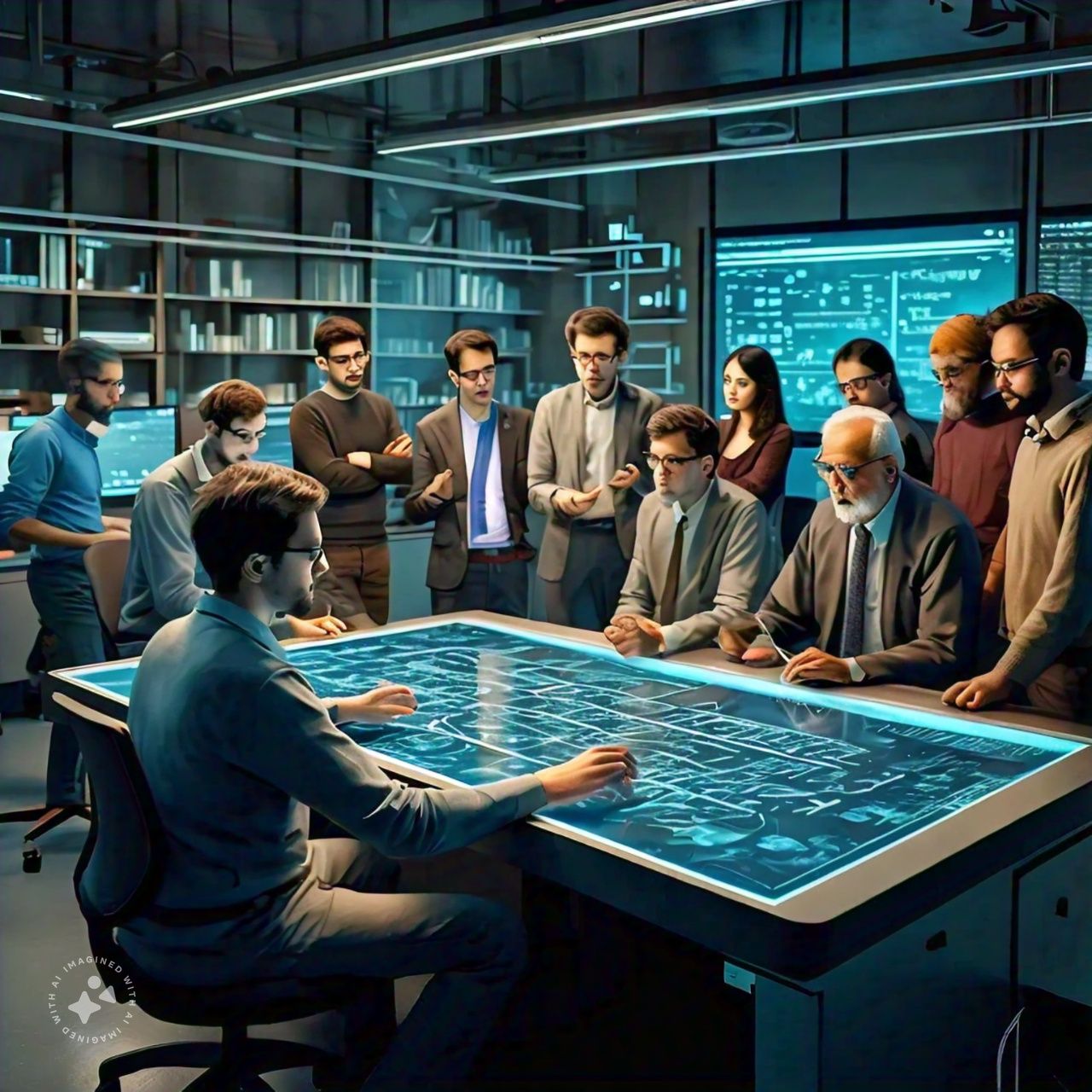AI in Smart Cities and Urban Planning
In the 21st century, the rapid growth of urban populations has created an urgent need for smarter cities that can efficiently manage resources, ensure sustainability, and improve the quality of life for residents. Artificial Intelligence (AI) has emerged as a transformative force, reshaping urban planning and the way cities operate. From predictive analytics to automation, AI is revolutionizing how cities are designed, developed, and managed.(AI in Smart Cities and Urban Planning)
The Concept of Smart Cities
A smart city leverages technology, data, and innovation to enhance urban living. It integrates digital tools and smart systems into its infrastructure, focusing on energy efficiency, transportation, waste management, and public safety. AI serves as the backbone of these efforts, enabling cities to analyze vast amounts of data, predict trends, and make data-driven decisions.(AI in Smart Cities and Urban Planning)

AI Applications in Smart Cities and Urban Planning
- Traffic Management and Transportation
AI-powered systems are tackling traffic congestion and improving public transportation. For instance, AI algorithms analyze real-time traffic data to optimize traffic signals, reducing delays and fuel consumption. Smart transit systems use predictive models to schedule buses and trains, ensuring efficient operations and timely service.(AI in Smart Cities and Urban Planning) - Urban Design and Land Use Planning
Urban planners can use AI to simulate various scenarios and evaluate their impact on the environment and society. AI tools analyze satellite imagery, geographical data, and demographic trends to propose optimal land use, reducing urban sprawl and preserving green spaces.(AI in Smart Cities and Urban Planning) - Energy Optimization
AI enhances energy efficiency by monitoring consumption patterns and predicting demand. Smart grids powered by AI distribute energy efficiently and minimize wastage. Additionally, AI supports the integration of renewable energy sources like solar and wind, reducing reliance on fossil fuels.(AI in Smart Cities and Urban Planning) - Waste Management
AI-driven waste management systems use sensors and data analytics to optimize garbage collection routes, reduce operational costs, and encourage recycling. Smart bins equipped with AI can identify and segregate waste automatically, promoting a circular economy.(AI in Smart Cities and Urban Planning) - Public Safety and Security
AI systems improve surveillance and emergency response. Machine learning algorithms can detect unusual behavior or potential threats in real time, enabling authorities to take swift action. Facial recognition and AI-powered predictive policing enhance security, while ensuring ethical implementation remains a priority.(AI in Smart Cities and Urban Planning) - Sustainable Development
AI helps in designing eco-friendly buildings, reducing carbon footprints, and predicting climate-related risks. Urban planners use AI to model flood-prone areas, optimize drainage systems, and implement sustainable water and air management strategies.(AI in Smart Cities and Urban Planning)
Challenges in Implementing AI in Smart Cities
- Data Privacy and Security
With AI relying heavily on data, safeguarding citizens’ privacy is crucial. Governments must ensure transparent data collection and enforce strict cybersecurity measures to prevent misuse. - Integration Complexity
Incorporating AI into existing infrastructure can be challenging and expensive. Cities need skilled professionals and robust policies to streamline AI implementation. - Ethical Concerns
Bias in AI algorithms and potential job displacement are ethical challenges that require careful consideration. Addressing these issues is essential to ensure fairness and inclusivity.(AI in Smart Cities and Urban Planning)
The Future of AI in Urban Planning
As AI technology evolves, its potential in smart cities will only grow. Future applications may include autonomous vehicles transforming public transportation, AI-driven urban farming ensuring food security, and advanced predictive tools enabling proactive decision-making. Cities that embrace AI will become more sustainable, livable, and resilient.(AI in Smart Cities and Urban Planning)

Conclusion
AI is not just a tool but a catalyst for creating smarter, more efficient cities. By addressing the challenges and leveraging AI’s capabilities, urban planners and policymakers can transform the urban landscape, ensuring a better future for millions. The integration of AI in smart cities promises a harmonious blend of technology and humanity, paving the way for innovation-driven urban development.(AI in Smart Cities and Urban Planning)
Social Media handles (Facebook, Linkedin, Twitter
Go to our Website for News and Articles: https://informtoyou.com/



